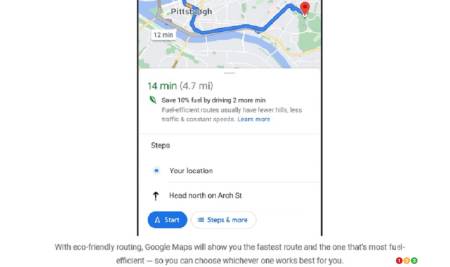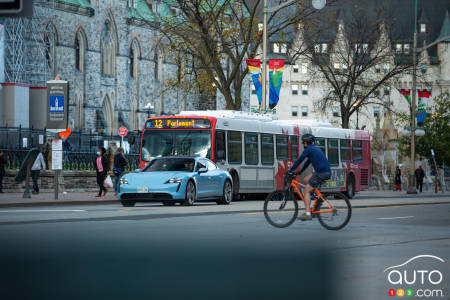You may have noticed it, you may not. But a new feature has been in the Google Maps application for two weeks now, and it’s making its appearance on more and more devices. Itinerary suggestions are now giving the drivers the option of picking a “greener” route that will help them reduce their vehicle's emissions – and save on gas, in the longer run.
The option is not appearing everywhere just yet. I tried the app this week with no “green” routes offered, both for trips in Canada and the United States. We'll have to see how it rolls out to Android users.
Along with the quickest route, Google Maps now also suggests a route that reduces fuel consumption. That itinerary may be slightly longer in distance and/or in time, but the goal is to reduce consumption and emissions. In some cases, says Google, the fastest route will also be the most fuel-efficient, and then it will only suggest this one option.
If multiple routes are displayed, Google will show the potential fuel savings (in percentages) and the time difference between the fastest and greenest routes. The choice is then up to drivers. The green route is indicated with a green leaf. If you prefer not to see the green route, you can disable this feature and Google will only show the fastest option.

Google estimates that if all drivers were to always use the least “polluting” route, that would cut one million tons of carbon emissions each year. Put another way, that's the equivalent of taking 200,000 cars off the road. That's no small thing, but the question is how willing motorists will be to extending their commute to give the planet a boost.
If they save money at the pump, maybe. It's at least an interesting option and certainly one that will serve to inform and educate. The final decision is of course up to the individual.
As for whether the app is always right, there’s probably room for debate there. For one thing, not all vehicles are equally efficient on all trips. For example, a hybrid model will be more economical in the city and less so on the highway; vice versa with a gasoline vehicle. Users of the app will have to take this into account.



